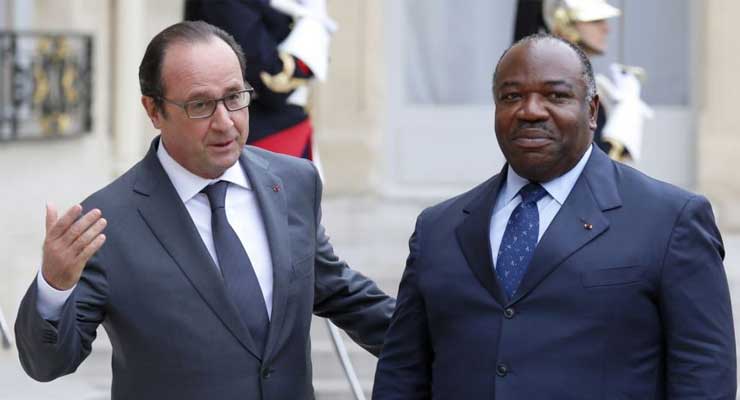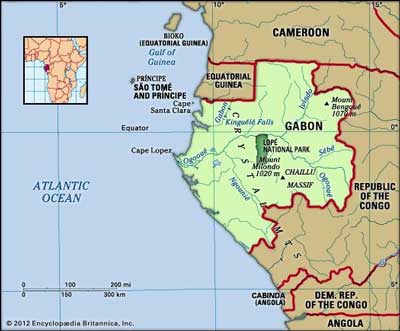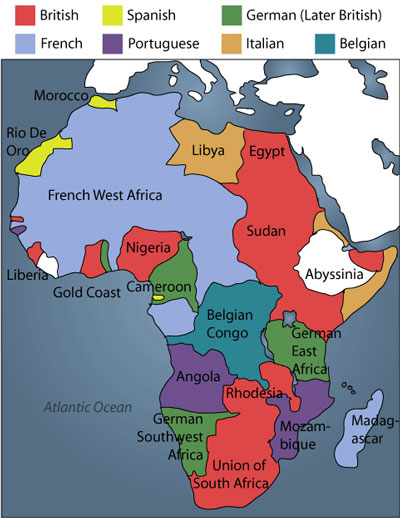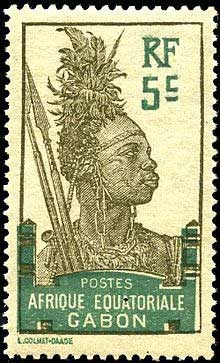
Gabon is one of only two countries in the Central African sub-region that has not experienced armed civil conflict since gaining independence. This has been mostly attributed to the special relationship its leadership has had with the former colonial master, France. Events following the 2016 Presidential election seem to suggest a departure from this tradition.
A single round presidential election was held in Gabon on Sunday 28 August 2016. There were 14 candidates including Ali Bongo Ondibma, the incumbent. The main opposition candidate was Jean Ping, former Chairperson of the African Union (AU) Commission and regime crony of Ali Bongo’s late father, President Omar Bongo Ondimba. A post-election crisis followed the re-election of the incumbent Ali Bongo.
French official reactioni and official Gabonese rhetoric suggesting the tense relations between re-elected President and the French Metropolis of France-Afrique may have played a role in the non-acceptance of official election results by the main opposition leader. What explains the recent post-election violence in Gabon? Did President Bongo rig the election? This paper seeks to answer these questions.
The Context of the 2016 Elections
Gabon gained independence from France on 17 August 1960. Gabriel Leon Mba became its first Head of State. When he died in 1967 he was succeeded by his Vice, Albert-Bernard Bongo Ondimba who upon conversion to Islam in 1973 took the name Omar Bongo Ondimba. Omar Bongo ruled Gabon with an iron fist until his death in 2009. He created one of the most sophisticated neo-patrimonial regimes in Africa and used Gabon’s oil wealth as if it were his private property. His family and clients became extremely wealthy while the average Gabonese citizen languished in poverty and misery.
 For these Gabonese his death was seen as an opportunity for change but it would seem that that change was not forthcoming. This was because that same year, Ali Bongo, Omar’s controversial son was inducted as chairman and presidential candidate for the Gabonese Democratic Party (PDG), created by Omar Bongo in 1968 in replacement of Leon M’ba’s party, the Gabonese Democratic Bloc (BDG).
For these Gabonese his death was seen as an opportunity for change but it would seem that that change was not forthcoming. This was because that same year, Ali Bongo, Omar’s controversial son was inducted as chairman and presidential candidate for the Gabonese Democratic Party (PDG), created by Omar Bongo in 1968 in replacement of Leon M’ba’s party, the Gabonese Democratic Bloc (BDG).
It was evident that the old barons had found in Ali Bongo the champion to continue dynastic rule even though it seems Ali was opposed by members of his own family, especially by Pascaline Bongo. It is alleged that it is Paul Biya, President of Cameroon since 1982 who reconciled the two using “objective arguments” related to the protection of family interests. These circumstances and an implicit French support umbrella of Ali, gave the opposition an alibi to call Ali’s victory during the 2009 presidential polls a fraudulent one. The post-electoral crisis was violent but Ali would succeed to stay in power for the next seven years.
From Partner to Opponent
During his first term as President, Ali began to show a new face, one which indicated that he wanted to seduce the people. Whether this seduction was genuine or not, what is clear is that he tried to detach himself from the same old barons who had inducted him. The interest shown in serving and winning the support of his citizens appears to have had an impact on his relationship with French power circles.
Following his election in 2009, Ali Bongo was made Grand Master of the Gabonese Freemasonry Lodge, swearing an oath that many would say is contrary to the oath of President of the Republic. This gave priority of place among all Gabonese elites. Such influence by a national had only been enjoyed by his late father. Ali’s efforts to also woe his mandate as President at least theoretically warrants he should serve before all else implicitly showed that show that he did not believe in the “Gabon of the privileged classes.”
He gradually detached himself from some of his father’s closest aides. He would even fall out with his family as he seemed to “return” the wealth of the people by transferring some of his late “father’s money” into State coffers.ii He started falling out with France when he obtained legislation for the transformation of Gabonese wood in Gabon and charged Total with a fine of 805 million dollars.iii In the meantime he embarked on ambitious infrastructural projects and introduced a “Grain Project” with the aim of Gabonese food auto-sufficiency. These efforts however seem to have done little more than worsen his already tense relationship with French elite circles but also with some important figures of his father’s era.
 Taking power from persons who had enjoyed it undisputedly for over 40 years under his father made him have powerful internal enemies. Additionally, his actions against French economic interests made him become an enemy of France. Ali’s relationship with France broke down to the extent that the French Premier, Manuel Valls, declared in early 2016 that his election in 2009 was irregular (the same election the French had endorsed in 2009) and claimed he was not Gabonese. Finally, in spite of his “operation seduction” which included giving away his father’s money to the Gabonese people, the statement that all Gabonese were heirs of Omar Bongo used to justify this decision, did not go down well with some Gabonese citizens that had been exasperated by over 40 years of Omar’s dictatorship.
Taking power from persons who had enjoyed it undisputedly for over 40 years under his father made him have powerful internal enemies. Additionally, his actions against French economic interests made him become an enemy of France. Ali’s relationship with France broke down to the extent that the French Premier, Manuel Valls, declared in early 2016 that his election in 2009 was irregular (the same election the French had endorsed in 2009) and claimed he was not Gabonese. Finally, in spite of his “operation seduction” which included giving away his father’s money to the Gabonese people, the statement that all Gabonese were heirs of Omar Bongo used to justify this decision, did not go down well with some Gabonese citizens that had been exasperated by over 40 years of Omar’s dictatorship.
The main opposition leader in 2009 was the late André Mba Obame. This political figure had been a close aid of Omar Bongo and had served him very loyally for several years. Most even saw him as the Fang son of the Teke ruler.
With the Obame chapter successfully closed after the 2009 election the 2016, a new chapter, however opened in which a good number of disgruntled former regime moguls stood against Bongo Junior. They include Guy Nzouba, Casimir Oye Mba and notably Jean Ping. All these persons contributed to make Omar’s dictatorship what it was but have all of a sudden become democrats who want change. Their claim that they have more support from the citizens and will do better than Ali Bongo is therefore questionable.
What change can they bring when they were groomed in the ways of dictatorship?
While this is a presumptuous statement it may not be wrong to think that these people are just angry opportunists. They might have become angry that a “small boy” like Ali is their ruler and upon that trying to sideline them. Benefiting from the anger of the part of the population against the Bongo dynasty, they have now taken upon themselves the casket of the ones who can make Gabon better. This is highly doubtful.
The main opposition leader Jean Ping who is half-Chinese, is very representative of this supposedly ‘anti Bongo’ opposition. This career diplomat served in several key ministerial positions under Omar Bongo and had continued to enjoy support from the Gabonese government in the early years of Ali Bongo’s first mandate. He has also proven to be very close to China all through his political life. But in the 2016 elections he accused Ali Bongo of all the ills Gabon was facing and made the gross statement that Ali Bongo was not even Gabonese but Nigerian.
It is rather surprising that being the son of a Chinese immigrant himself Ping could make such claims about his opponent.iv In principle, if the allegations about Ali Bongo’s descent were correct, then under Gabonese nationality law both of them should normally not be running for President.v His popularity in spite of all this can be said to have also contributed to the post-election crisis.
Who won the election?
The announcement of election results by the Autonomous and Permanent National Electoral Commission (CENAP) on Wednesday 31 August 2016 was followed by violent clashes on the streets of Libreville, between the Police and Ping supporters who cried foul. The results showed that Ali Bongo had won the Presidency with 49.85% of the votes while Ping had 48.23%.
Jean Ping has never been an active opposition leader and has enjoyed a distinguished career as a diplomat in the decade preceding 2010. His huge support base is therefore incidental and derives from the fact that a section of the population just needs a candidate, whoever it is, behind whom they can rally. Ping seems at this moment, like André Mba Obame in 2009, to meet this criterion. Otherwise, everything being equal, he does not merit to have support from the population as he has never worked as an active political figure. Also, since the French had fallen out with Ali Bongo, Ping now enjoys Western support. But this is a dangerous gamble for the Francophonie Metropolis as Jean Ping is a half Chinese. It should be expected that a Ping presidency should move Gabon closer to Charity starts at home.

On the other hand, just for being Omar’s son, Ali carries the stigma of his father’s dictatorship in the eyes of the people. Truly, the way people become President in most of francophone Africa is more than undemocratic but an Ali Presidency though marked by high debt and some failed projects has been one in which the incumbent has made several efforts to truly breakaway from his father’s neo-colonial style of government. While he also enjoys a huge support base, many Gabonese just don’t like the name Bongo again. Also, times have changed and the French have reduced the rate at which they backed military coups in Africa.vi
Their new strategy seems to be tarnishing the image of their enemy and supporting a new Presidential candidate with high manipulative strategies. This strategy appears to have been tested for the first time in Ivory Coast.vii Statements made by the French government in the aftermath of the 2016 presidential election could be considered to suggest a desire to force Ali out.
France appears to prefer a bet that the half Chinese Jean Ping will be their ally and prefer to oust the rebel freemason Ali Bongo. But this is a dangerous move for them as it is more likely that Jean Ping will work very closely with the Chinese than with the West. His relations with China during his Chairmanship at the AU Commission are evidence of this.
On the other side, Ali Bongo is a pro-West individual whose jovial behavior radiates western ideals of freedom. If Ping were President and the predictions above turned out to be correct then the people of Gabon may agonize more than they can imagine. In a country where public accountability has for long been an affair of the ruling class, the people probably have no idea about the extent to which the Omar Bongo political class can desire to enjoy State funds.
When politicians are in power in francophone Africa they loot public funds because they are not accountable. Once they are out of power and cannot access these funds as a result of problematic redistributive politics they become violent opponents. Ali has been preventing barons of the Omar Bongo era from having access to State funds. This makes them angry.
The slim difference between the scores of Ali and Ping show that the elections were highly contested. Saying Ali rigged the elections without proof is also undemocratic. Until Africans learn to do their homework they will continue to fall into the trap of unscrupulous politicians and neo-colonial French strategies to destabilize Africa. An electoral commission that is under government control will always be a reason to cry foul. What proves that a Ping presidency will be different in this respect?
But the average citizen does not see this. Also, the nature of results from a single province, the Haut-Ogouée, does not prove that Ali Bongo rigged the elections. The calls from France that results must be recounted could be considered as interference in the internal affairs of Gabon, especially given that the election took place in respect of National Laws and the result were declared following due process.viii It is not possible to imagine a Gabon asking for a recount in the aftermath of a French election. Why should the French do that when it comes to Gabon? The results for all the polling stations were published after the announcement of the results so asking for a recount is suspicious.
Conclusion
Ali Bongo remains a divisive figure not necessarily because he is a bad ruler but because he is the son of Omar Bongo. If he is able to sail through this second mandate it can be recommended that he does a number of things. He should call for a national conference in which all Gabonese will sit and decide on how their nation will be governed. He himself must propose that the presidential terms be reduced to five years and that the number of mandates must be two terms non-renewable. He must also take the engagement of stepping down after this second mandate. The electoral administration must be given more autonomy void of all partisanships. Decentralisation must be reinforced and the powers of the President should be reduced. Public accountability must be a watchword for the new Republic and all holders of chief decision making positions must declare their assets before holding office. Such Constitutional dispositions must become rigid in the Constitution and the President should be stripped of powers that enable him modify the Constitution at will. Also, during such a conference politicians who held key positions during the Omar Bongo era must agree not to run for future elections so that a new political class can arise in Gabon, one suited for the present times.
Sources:
i Justine Babin , 02 September 2016, Gabon : pourquoi la France tourne le dos à Ali Bongo.
ii ALJAZEERA, 18 August 2015 “Gabon president vows to give inheritance to charity”.
iii Patrick Juillard, 17 March 2015, Et si la France lâchait Ali Bongo?
iv Tirthankar Chanda, August 2016, Ali Bongo versus Jean Ping: autopsie d’une brouille.
v Sadi Gilbert, December 2015, Jean Ping ne pourra pas être candidat en 2016!, Times Gabon.
See also: Pharel BOUKIKA, March 2016, Que dit la loi sur les conditions de validité d’une candidature à la présidentielle? L’abus de langage du constituant.
vi CSM Duggan, Do different coups have different implications for investment.
vii ‘Côte d’Ivoire : La justice française veut entendre MAM, Villepin et Barnier sur l’affaire Bouaké’.
viii Electoral Code of Gabon.
Leave a Reply